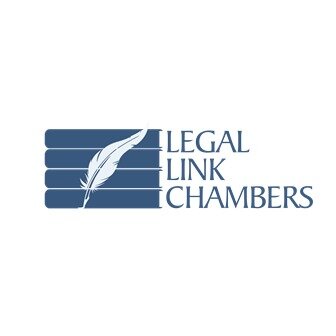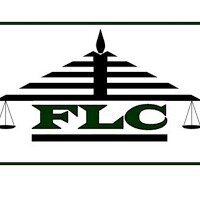Best Wrongful Termination Lawyers in Kigali
Share your needs with us, get contacted by law firms.
Free. Takes 2 min.
List of the best lawyers in Kigali, Rwanda
About Wrongful Termination Law in Kigali, Rwanda
Wrongful termination refers to an employment situation where an employee is dismissed from their job in violation of the employment contract or Rwanda's labor laws. In Kigali, Rwanda, wrongful termination encompasses terminations that are executed without just cause, without following due process, or in violation of any statutory provision meant to protect the worker's rights. The labor market in Rwanda is governed by several pieces of legislation, notably the Law Regulating Labor in Rwanda, which sets guidelines for fair termination practices and aims to protect employees from unjust treatment.
Why You May Need a Lawyer
There are several scenarios in which you might need a lawyer if you believe you've been wrongfully terminated:
1. If your termination was executed in breach of the terms laid out in your employment contract.
2. If your dismissal was based on discrimination (due to age, gender, race, disability, etc.) which is unlawful.
3. If you were terminated without the proper notice or severance pay, as demanded by local labor laws.
4. If the termination was retaliatory, such as being fired for whistleblowing or reporting workplace violations.
5. If you need assistance in negotiating a severance package or settlement.
An experienced lawyer can provide legal counsel, help preserve your rights, and guide you through the legal processes involved.
Local Laws Overview
The key aspects of wrongful termination laws in Kigali and across Rwanda include:
1. Employment Contracts: Employees are protected under written and verbal agreements, and any breach can lead to a wrongful termination claim.
2. Notice and Compensation: Employers must provide due notice or compensation in lieu of notice, unless there is just cause for immediate termination.
3. Just Cause: Termination must be justified by legal or performance-related reasons set out under the law.
4. Non-discrimination: It's unlawful to terminate an employee based on discriminatory grounds such as sex, race, religion, or disability.
5. Procedural Fairness: The process of dismissal must follow the procedural requirements specified in local labor laws, ensuring the employee's right to a fair hearing.
Frequently Asked Questions
What constitutes wrongful termination in Kigali, Rwanda?
Wrongful termination occurs when an employee is terminated in violation of an employment agreement or labor laws, including terminations based on discrimination, harassment, or retaliation.
Can I be fired without notice in Kigali?
While employers may terminate employment without notice for "just cause" (e.g., gross misconduct), otherwise, they are required by law to provide advance notice or equivalent compensation.
Is discrimination a valid ground for termination?
No, discrimination based on factors such as race, sex, age, or disability is prohibited by Rwandan law, and any termination on such grounds can be challenged legally.
How long do I have to file a claim of wrongful termination?
In Rwanda, there is usually a statutory limitation period within which employment disputes, including wrongful termination, must be brought forward. It's advisable to seek legal advice as soon as possible to ensure compliance with these time limits.
Can I sue my employer for emotional distress resulting from wrongful termination?
While you can seek damages for wrongful termination, including potentially for emotional distress, the viability of such a claim depends on the specific circumstances and available evidence.
What should I do if I suspect my termination was retaliation for reporting a workplace issue?
Consult with an employment lawyer to discuss your case and evaluate potential claims under whistleblower protections or anti-retaliation statutes.
Does my employment contract affect my wrongful termination claim?
Yes, the terms of your contract can significantly impact the nature of your claim, as they dictate the agreed-upon duties, rights, and obligations of both parties.
Are verbal employment agreements enforceable in Rwanda?
Verbal agreements are legally recognized, though they may present challenges in enforcement due to difficulties in proving agreed terms compared to written contracts.
What evidence is needed to prove wrongful termination?
Documentation such as the employment contract, termination notice, witness statements, and any correspondence related to your termination can support your claim.
Is it possible to negotiate my severance even after termination?
Yes, negotiating severance post-termination is possible, especially with the assistance of a lawyer who can advocate on your behalf.
Additional Resources
For those seeking advice or further information, the following resources might be helpful:
- The Rwanda Bar Association, which can assist in finding qualified employment lawyers.
- The Ministry of Public Service and Labour, which provides resources regarding labor practices and laws.
- Non-governmental organizations such as Legal Aid Forum providing support in labor disputes.
Next Steps
If you need legal assistance in a wrongful termination case, here are some steps to follow:
1. Gather all relevant documents including your employment contract, termination letter, and any correspondence with your employer.
2. Consult a lawyer who specializes in employment law to evaluate your case details and potential claims.
3. Explore possible remedies through mediation, negotiation, or litigation as advised by your legal counsel.
4. Consider bringing your case before the appropriate legal bodies or courts if informal resolutions are ineffective.
Having legal representation can help ensure your rights are protected and bolster your case for any compensation or reinstatement claims you might pursue.
Lawzana helps you find the best lawyers and law firms in Kigali through a curated and pre-screened list of qualified legal professionals. Our platform offers rankings and detailed profiles of attorneys and law firms, allowing you to compare based on practice areas, including Wrongful Termination, experience, and client feedback.
Each profile includes a description of the firm's areas of practice, client reviews, team members and partners, year of establishment, spoken languages, office locations, contact information, social media presence, and any published articles or resources. Most firms on our platform speak English and are experienced in both local and international legal matters.
Get a quote from top-rated law firms in Kigali, Rwanda — quickly, securely, and without unnecessary hassle.
Disclaimer:
The information provided on this page is for general informational purposes only and does not constitute legal advice. While we strive to ensure the accuracy and relevance of the content, legal information may change over time, and interpretations of the law can vary. You should always consult with a qualified legal professional for advice specific to your situation.
We disclaim all liability for actions taken or not taken based on the content of this page. If you believe any information is incorrect or outdated, please contact us, and we will review and update it where appropriate.















